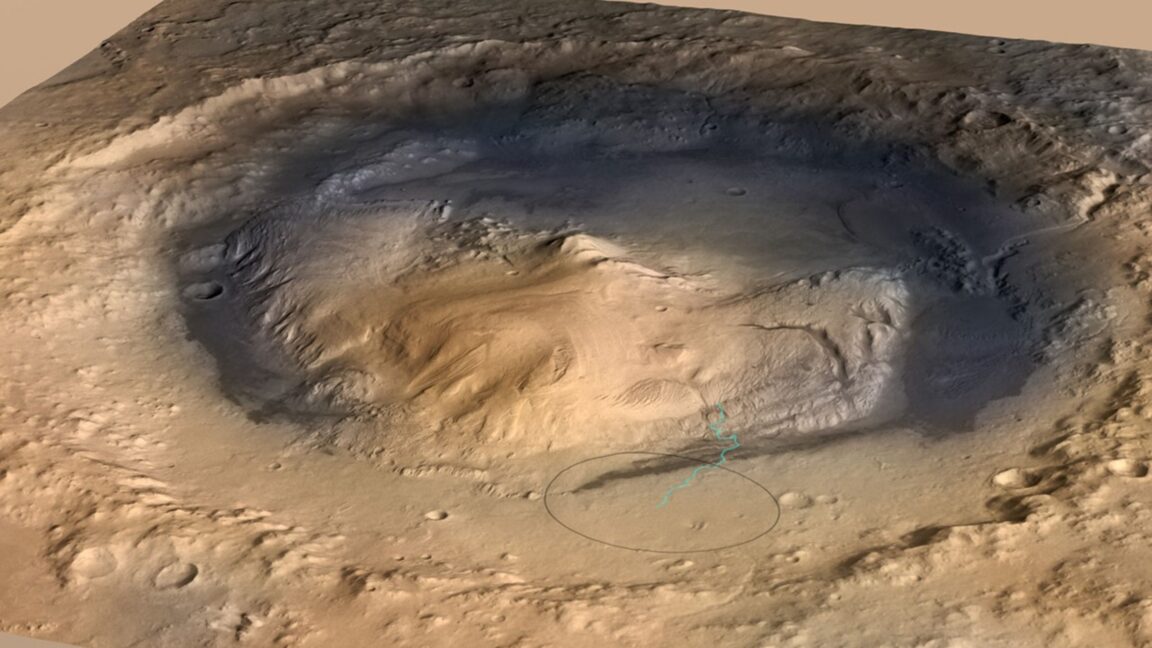
""The siderite found in the samples was also pure, which Tutolo thinks indicates it has formed through an evaporation process akin to what we see in evaporated lakes on Earth.""
""On Earth, whenever oceanic plates get subducted into the mantle, all of the limestone that was formed before gets cooked off, and the carbon dioxide gets back to the atmosphere through volcanoes.""
NASA's Curiosity rover investigated the geological history of Mars, focusing on sediment samples collected from Mount Sharp. The analysis revealed significant amounts of siderite, an iron carbonate, providing evidence of an ancient Martian carbon cycle. Unlike Earth, where carbon trapped in rocks can be released back into the atmosphere via subduction and volcanic activity, Mars lacks efficient plate tectonics, resulting in carbon being trapped indefinitely in its rocks. This discovery sheds light on Mars' habitability and climatic history.
Read at Ars Technica
Unable to calculate read time
Collection
[
|
...
]